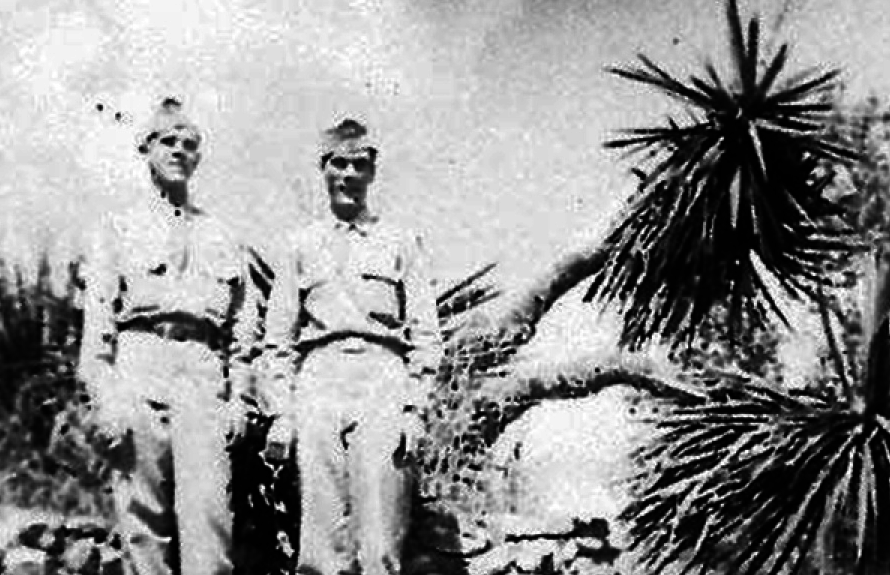“Mr. Spires does not want to pass knowing that he will not be honored with a military burial and that the Air Force still refuses to acknowledge the sacrifices he made to serve his country with honor.”
***
In 1946, Edward Spires was a United States airman, serving as a chaplain’s assistant at Lackland Air Force Base in San Antonio, Texas. A year later, he was at a Halloween party — off the base — when a fellow military member spotted him. Unfortunately, his life would never be the same from that night forth.
The serviceman who saw him that evening thought the costume he wearing was a dress. He reported Spires, and was subsequently interrogated by the base’s authorities. According to the former airman, the questioning itself was both “horrific” and “unbearable.”
Soon thereafter, he was court-martialed and discharged from the service, his records marked “undesirable”, rather than “honorable.”
After decades of no VA benefits and the burden of personal shame, the now-ailing 91-year-old vet, a gay married man, is asking the Department of Defense for a simple fix. Through a lawsuit addressed to Secretary Deborah Lee James (with the help of the Yale Law School Veterans Legal Services Clinic), Spires is requesting an upgrade of his discharge, to honorable, so that he may not only find closure in his grief, but also receive a military burial when he passes.
He first made such an inquiry in 2014, but was rejected by the USAF on the grounds that his records were too old, with many of them lost in a 1973 fire.
His most recent attempt, this year, has yet to find an answer.
According to Stars and Stripes, “many servicemembers — by some estimates about 100,000 — were other-than-honorably discharged for being gay from World War II to 2011, when the military’s ‘don’t ask, don’t tell’ policy was repealed.”
Some vets, they say, have asked for the same appeal and successfully received an upgrade.
Two senators have publicly addressed the situation, and urged the Pentagon to speed up the process of reviewing such cases (there are thousands).
The lawyer handling Spires’ case asked the military to upgrade his client’s discharge in two weeks time, at the time of the Stars and Stripes story’s publication, November 18.
“After being cast out of the Air Force for being a gay man, Ed rarely spoke of his military service or his discharge, humiliated by the Air Force’s labeling of his services as undesirable. For the past decades, he has been made to feel ashamed,” said Spires’ husband and U.S. Army veteran, David Rosenberg.
UPDATE: On Friday, Spires got the thumbs up from the Air Force Board for the Correction of Military Records that his record was officially changed to an “honorable discharge.”
“Great elation. I wanted to kick the Air Force in the ass for putting me through what they put me through all these years. But I have to forgive and forget.”
This from the day:
The board concluded that Spires has “exhausted all remedies provided by existing law or regulations,” his application was filed in a timely manner and that “sufficient relevant evidence has been presented to demonstrate the existence of an injustice.”
The upgrade makes Spires, who served in the Air Force from 1946 to 1948, eligible for certain veterans’ benefits or to be buried with military honors, as the veteran desires. In the fall, he spent three weeks in the hospital with pneumonia.
“I can now go on and conquer bigger giants like Samson.”




































